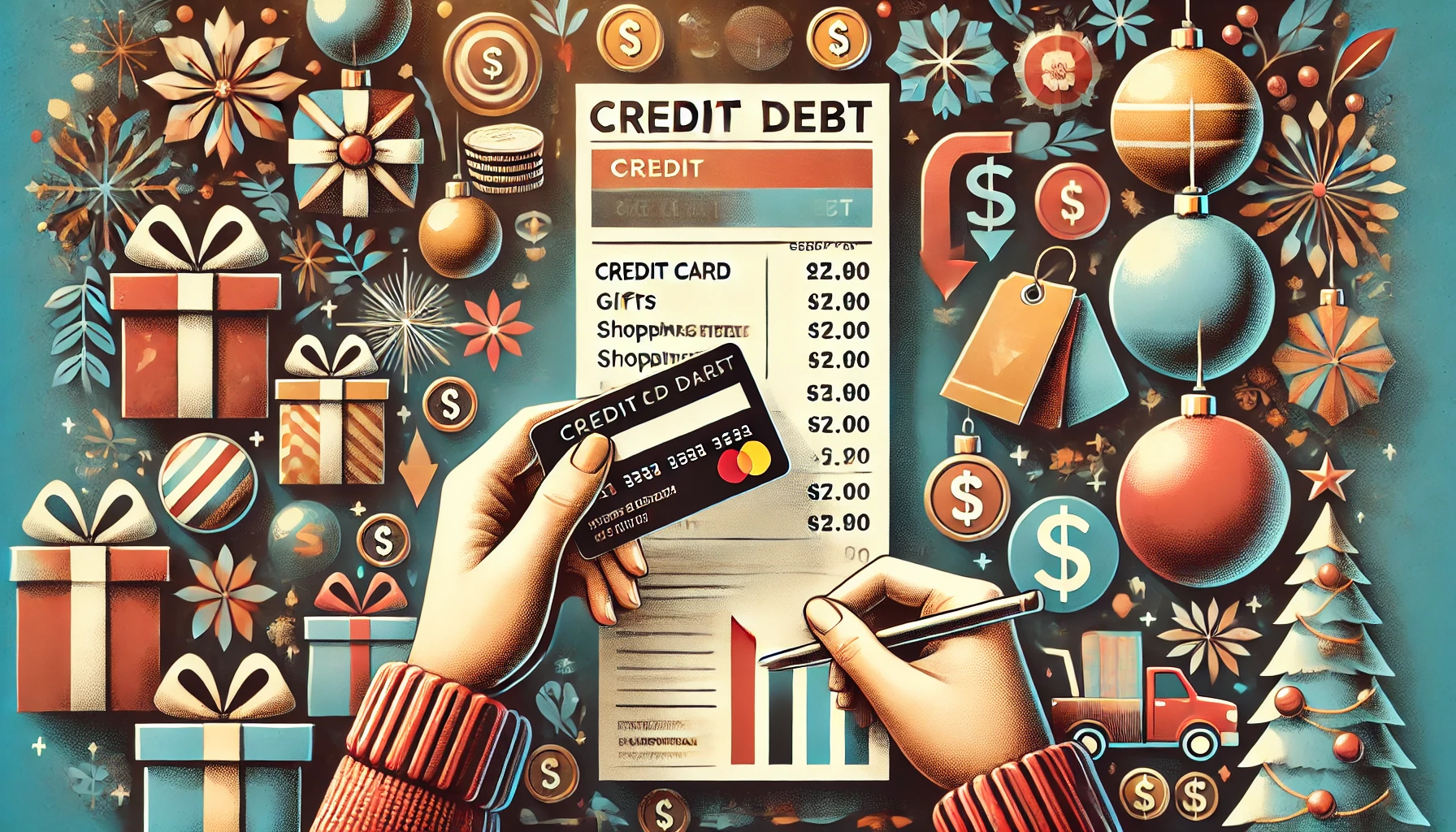The holiday season is a time for celebration, but it can also be a period of increased spending, often leading to mounting credit card debt. With gifts, travel, dining, and holiday activities adding up quickly, it’s easy to overspend and find yourself facing a daunting balance when the new year arrives. However, with smart strategies, you can enjoy the holidays while keeping your finances in check.
Here are five practical tips for managing credit card debt during the holiday season:
1. Set a Holiday Budget and Stick to It
The best way to avoid racking up credit card debt is to set a clear holiday budget before you start spending. Having a detailed plan in place will help you prioritize your expenses and avoid impulse purchases that could lead to overspending.
How to Set a Holiday Budget:
- List all holiday expenses: Include gifts, decorations, travel, food, entertainment, and any other holiday-related expenses. Be realistic about how much you’re willing and able to spend in each category.
- Set spending limits: Once you’ve accounted for all your expenses, set a spending limit for each category. For example, decide how much you’ll spend on gifts for each person, how much you’ll allocate for holiday meals, and so on.
- Track your spending: Keep track of every purchase to ensure you’re staying within your budget. Many budgeting apps, like Mint or YNAB, can help you monitor your spending in real time.
By sticking to your budget, you can enjoy the holiday season without carrying a heavy credit card balance into the new year.
2. Avoid Using Multiple Credit Cards
Using multiple credit cards during the holidays can make it difficult to keep track of spending, increasing the likelihood of overspending and accumulating debt. To avoid this, consider limiting yourself to one card for your holiday purchases.
Benefits of Using One Credit Card:
- Simplify tracking: Using a single card allows you to easily track all your holiday-related spending in one place, making it easier to stick to your budget.
- Minimize interest: By concentrating your spending on one card, you can better manage payments and reduce the chances of missing a payment, which can lead to high interest charges.
- Maximize rewards: If you have a rewards credit card, using one card for all your holiday purchases can help you maximize points or cashback rewards. Look for cards that offer bonus rewards in categories like shopping or dining during the holidays.
Limiting yourself to one card helps you maintain control over your spending and reduces the risk of accumulating too much debt across multiple accounts.
3. Pay Off Balances in Full (If Possible)
The easiest way to manage credit card debt is to pay off your balance in full before the due date. This ensures that you’re not carrying a balance into the next month and prevents interest charges from adding up.
Tips for Paying Off Balances:
- Prioritize holiday debt: If you’re carrying balances from previous months, prioritize paying off any new holiday debt first to avoid compounding interest charges.
- Make extra payments: Instead of waiting until the end of the month, make multiple smaller payments throughout the month. This reduces your average daily balance, lowering the interest charged.
- Use windfalls to pay down debt: If you receive a year-end bonus, holiday gift money, or a tax refund, consider using it to pay down your credit card debt rather than making additional purchases.
If you can’t pay off the entire balance, aim to pay more than the minimum payment to reduce the amount of interest you’ll pay over time.
4. Look for Balance Transfer or 0% APR Offers
If you find yourself with high credit card balances after the holidays, a balance transfer or 0% APR offer can help you manage the debt more effectively. Many credit cards offer introductory 0% APR periods for new purchases or balance transfers, allowing you to pay off your balance over several months without accruing interest.
How to Use Balance Transfer or 0% APR Offers:
- Transfer high-interest balances: Look for credit cards that offer 0% interest on balance transfers for an introductory period (often 12-18 months). Transfer high-interest balances from other cards to this new card, and focus on paying down the debt before the promotional period ends.
- Pay down debt faster: With no interest accumulating during the introductory period, you can pay down the principal balance more quickly. Make sure to make on-time payments to avoid penalties or losing the 0% interest rate.
- Watch for fees: Some balance transfer cards charge a balance transfer fee, typically 3-5% of the transferred amount. Make sure that the savings from the 0% interest outweigh any transfer fees.
Using balance transfers and 0% APR offers can give you breathing room to pay off debt without high interest weighing you down.
5. Avoid Impulse Purchases and Use Cash When Possible
Impulse purchases can quickly add up during the holiday season, especially when you’re surrounded by festive sales and holiday promotions. To avoid racking up debt, practice mindful spending and consider using cash for certain purchases to stay within your budget.
Tips to Avoid Impulse Spending:
- Shop with a list: Before heading to the store or shopping online, create a list of exactly what you need to buy and stick to it. This helps you avoid buying unnecessary items just because they’re on sale.
- Wait 24 hours: If you’re tempted to make an impulse purchase, wait 24 hours before making the decision. This cooling-off period can help you evaluate whether the purchase is really necessary.
- Use cash or debit for small purchases: For smaller expenses like gifts, dining out, or holiday activities, consider using cash or a debit card. Using cash can help you stay within your budget and avoid the temptation to overspend on credit.
By practicing mindful spending and avoiding impulse purchases, you can stay on track with your holiday budget and prevent credit card debt from accumulating.
Final Thoughts
Managing credit card debt during the holiday season requires careful planning, discipline, and mindful spending. By setting a budget, sticking to one credit card, paying off balances, and taking advantage of 0% APR offers, you can enjoy the festivities without worrying about overwhelming debt in the new year.
These smart financial habits not only help you manage your holiday spending but also set you up for a financially healthier and stress-free start to 2025.





 GOOGL
GOOGL META
META
Leave a Comment